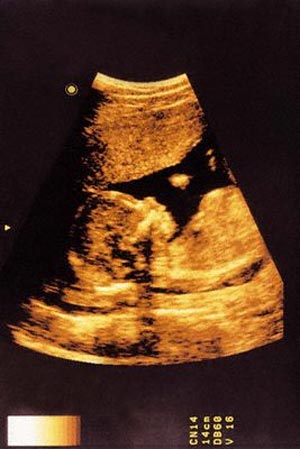Infertility Clinic

Infertility is a situation when a couple is not able to conceive for a year without the use of any contraceptive device. According to the American Society for Reproductive Medicine, infertility is said to affect nearly 10% of the reproductive population of America. Infertility in women can occur due to many reasons. We try and list out some of the common causes of infertility. Infertility clinics have mushroomed all over. How do you check their veracity? Take a look at some of the facilities offered by infertility centers. Today advanced reproductive technology with strong drugs, hormones and surgery has been able to tackle many of the causes of infertility. They might help you tackle your problems and chart your way to parenthood. But beware of the emotional roller coaster that can be a resultant of the infertility treatments.
Infertility clinic
An infertility center conducts tests and diagnoses the problems of infertility and treatments to correct the obvious causes. You need to choose the right type of infertility clinic since you will be entrusting them with an important aspect of your health. You need to consider the monetary aspect too, since insurance plans do not generally cover a full course of infertility treatment procedures. The national Centers for Disease Control and Prevention maintain records of the success rates of various fertility centers around the U.S. Listed below are certain precautionary steps you must take before selecting an infertility center:
- Is the infertility clinic a member of the Society for Assisted Reproductive Technology?
- What are the procedures used at the infertility clinic? The center for infertility treatment must be abreast with the latest technological progress and remedial treatments. Ensure that the endocrinologists are certified and qualified in premature ovarian failure, endometriosis, fibroids and other aspects of reproductive endocrinology.
- Are the ethical issues of infertility treatment taken into consideration? Are the patient's views and needs taken into consideration? Are the doctors sensitive to the emotions of the couple?
- How much does the treatment at the infertility clinic cost? Most medical insurance policies do not cover the course of infertility treatment.
Infertility clinics also provide support services such as genetic counseling and support groups. Infertility clinics offer Assisted reproductive technologies (ART) to retrieve eggs from the ovary and plant them later. IVF (In Vitro Fertilization), GIFT (Gamete Intra Fallopian Transfer) and ZIFT (Zygote Intra Fallopian Transfer) are various assisted reproductive procedures. A reputed infertility center would be able to provide pre-implantation genetic diagnosis (PGD), egg freezing, embryo freezing and blastocyst transfer. Artificial insemination involves placing the sperm inside a woman's vagina, uterus or cervix.
Infertility in woman
A compete medical history and physical examination is the first step undertaken to investigate the cause of infertility. Menstrual history, family history of infertility and sexual factors are examined. Blood and urine tests to determine hormonal levels, prolactin levels, hyperthyroidism and diabetes are taken to evaluate the possible causes of infertility. Hormonal imbalances are sometimes caused by pituitary gland tumors.
Blocked fallopian tubes do not allow the egg to travel to the uterus and can be a cause for infertility. One of the primary tests for detecting infertility in women is to check whether she is ovulating correctly. This can be done by monitoring body temperature and checking the texture of the cervical mucus.
Hysterosalpingogram: In this test for checking the infertility of women, an x-ray of the fallopian tubes and uterus is taken after they are injected with dye. The x-ray displays the shape of the uterus and the state of the fallopian tubes. This diagnostic test is also useful in diagnosing conditions such as endometrial polyps, fibroid tumors and structural abnormalities of the uterus or fallopian tubes.
Laparoscopy: This is a test for checking the fallopian tubes and other female reproductive organs for disease. Chromosomal tests are conducted to detect sperm abnormalities and other abnormal patterns in the man and woman.
Cause of infertility
A couple is said to be infertile if they are unable to conceive after one or two years of trying. They should then consult an infertility specialist at an infertility center.
- Age is a factor that reduces a woman's chances for fertility. Women above 35 years have decreasing fertility and their chances of getting pregnant are reduced. The decreasing fertility can be on account of the higher rate of chromosomal damage that eggs undergo as time goes by.
- The amount of fat in a woman's body may have a bearing on her ability to conceive. Most of the estrogen in a woman's body is manufactured in her ovaries but some of it is produced in the fat cells. Too high or low weight levels can be a cause for infertility. Decreased body fat in marathon runners and those who indulge in heavy exercise may result in irregular menstrual cycles. Similarly women with eating disorders and restrictive diets can experience infertility. Disturbance in the estrogen balance can throw the reproductive cycle out of gear.
- Occupational and lifestyle factors also play no small role in the process of reproductive health. Exposure to high levels of chemicals and toxic substances, radiation and high temperatures can have a bearing on a woman's fertility. Women who smoke one or more packs a day or consume caffeine or alcohol in excess are at a risk of infertility.
- Pelvic Inflammatory Disease (PID) is a term that covers a gamut of infections affecting the reproductive organs of a woman. Infection in the fallopian tubes (salpingitis) is a common cause of infertility in women. Frequent bouts of infection can lead to tubal damage.
- Ovulation problems caused by hormonal disorders account for nearly a third of all problems of infertility in women. Resultant disorders could range from empty follicles or failure of the ovarian follicle to rupture. The hormonal rhythm is a delicate balance; a slight imbalance of which can cause ovulation disorders.
- Endometriosis is a situation when fragments of the endometrial lining are implanted in other areas of the pelvis leading to cysts that can result in infertility in women.
- Polycystic Ovarian Syndrome is a major cause of infertility in women in America. This is characterized by high levels of male hormones - androgen and testosterone. This results in inability to produce mature eggs and also manifests in symptoms such as acne and increased facial hair.
- Some women's bodies develop antibodies to sperm, which cause infertility and miscarriage. Adrenal or thyroid deficiencies can result in premature ovarian failure resulting in infertility.
Top of the Page: Infertility Clinic
Tags:#infertility clinic #infertility center #infertility in woman #cause of infertility
 Planning Pregnancy
Planning Pregnancy Pregnancy Diet and Exercise
Healthy Weight Gain in Pregnancy
Pregnancy Food Cravings
Pregnancy Heartburn
Improving Fertility after 35
Ovulation Test Strips
Pregnancy Symptoms
Early pregnancy cramping
Early pregnancy Test
High Risk Pregnancy
More on Pregnancy
 Natural Childbirth
Natural Childbirth Premature Birth
Pregnancy Massage
Pregnancy Problem
Pregnancy Due Date Calculator
Amniocentesis
Twin Pregnancy
Ectopic Pregnancy
Pregnancy Morning Sickness
Molar Pregnancy
Pregnancy Ultrasound
Constipation during pregnancy
Insomnia during Pregnancy
Smoking during Pregnancy
Teen Pregnancy
Exercise during pregnancy
Late Term Abortion
Sign of Miscarriage
Pregnancy Fatigue
Pregnancy Gas
Pregnancy sciatica
Belly Wrap after Pregnancy
Emotional Health during Pregnancy
Lactating Mother
Infertility
Recurrent Miscarriage
Pregnancy Varicose Veins
Postpartum Depression
Epidural
Premature Infant
Top of the Page: Infertility Clinic
Popularity Index: 100,903

